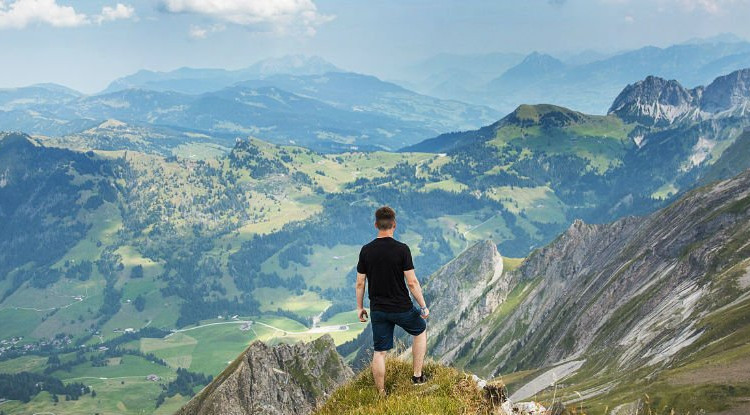Climbing will make your blood change months later
The human body is capable of adapting to the environment very quickly. And these biological changes can last for months afterwards even when these people have returned to live in lower elevations.
For the first time, scientists have compared the blood of climbers with the blood of ordinary people. In environments with low oxygen levels, the bodies of these people have had biological changes that affect the red blood cells' ability to hold oxygen.
This finding contradicts a hypothesis that lasted nearly half a century ago that humans living in high-altitude environments began producing new red blood cells to provide more oxygen to muscles and organ than normal people
This means that according to the old hypothesis, people living on Mount Everest - where air contains only about 53% of oxygen compared to sea level - will produce high-grade red blood cells capable of transporting oxygen and More effective nutrients.

Red blood cells have begun to change their structure after only a few hours since you started climbing.(Image source: sciencealert).
"It's something people have believed for more than 50 years," said Robert Roach, principal investigator and director of Altitude Research Center at the University of Colorado.
According to this hypothesis, people who live their entire lives in high mountains and low oxygen environments have gradually adapted biological mechanisms, such as Tibetans. However, this hypothesis does not seem right to mountaineers or ski travelers.
Your body is only capable of producing about 2 million new red blood cells every second. So it took several weeks for all red blood cells to be completely replaced. So few climbers within a few days how to adapt to this.
To find out, the scientists gave 21 volunteers, 12 men and 9 women, aged 19-23, to climb to the summit of Chacaltaya Bolivia at an altitude of 5,260 meters.
These volunteers were given blood samples before they climbed the mountain. Every 3km of height, they will get a blood sample once. When climbing to the top, these volunteers will climb back to the middle of the mountain and climb back up again. The whole trip lasts for 7 days.

Your body is only capable of producing about 2 million new red blood cells every second.
The results showed that when volunteers climbed to the top of the mountain for the second time, they felt easier and more comfortable than the first time. Volunteers have not only adapted during their first climbing trip but their bodies have also kept these changes even though they have gone down the mountain.
When the researchers analyzed blood samples, they found that the red blood cells remained the same and were not replaced. However, their structure has changed in a very fast time, only a few hours after the volunteers started climbing.
These changes involve the ability to transport and supply oxygen to muscles and other vital organs in the body. "We are really surprised because this mechanism is much more complicated than anticipated," Robert said.
- Certain skill sets must know before climbing Fansipan
- Blood type change after blood donation
- The dog shows great climbing skills
- Artificial blood - human hope
- Strange: Snake-footed snakes climb super-hard to believe
- Made gloves help people climb the vertical glass wall
- Surprise by the ability of mountain goats
- Find out how to change blood type
- Robot climbing wall new version
- Decode the ability to climb walls of geckos
- Successful treatment of blood cancer with stem cells
- Why do you breathe hard when climbing stairs
 Green tea cleans teeth better than mouthwash?
Green tea cleans teeth better than mouthwash? Death kiss: This is why you should not let anyone kiss your baby's lips
Death kiss: This is why you should not let anyone kiss your baby's lips What is salmonellosis?
What is salmonellosis? Caution should be exercised when using aloe vera through eating and drinking
Caution should be exercised when using aloe vera through eating and drinking Pig's blood helps to stay young, lose weight, and prevent cancer, but is 'a big no-no' for the following people
Pig's blood helps to stay young, lose weight, and prevent cancer, but is 'a big no-no' for the following people  How does the kidney filter blood?
How does the kidney filter blood?  American millionaire uses 17-year-old son's blood to rejuvenate
American millionaire uses 17-year-old son's blood to rejuvenate  Why does nature produce so many blood-sucking insects?
Why does nature produce so many blood-sucking insects?  Superpower gene discovered, 'superhumans' will soon become a reality in the future!
Superpower gene discovered, 'superhumans' will soon become a reality in the future!  New discovery about people who may be naturally resistant to nCoV
New discovery about people who may be naturally resistant to nCoV 